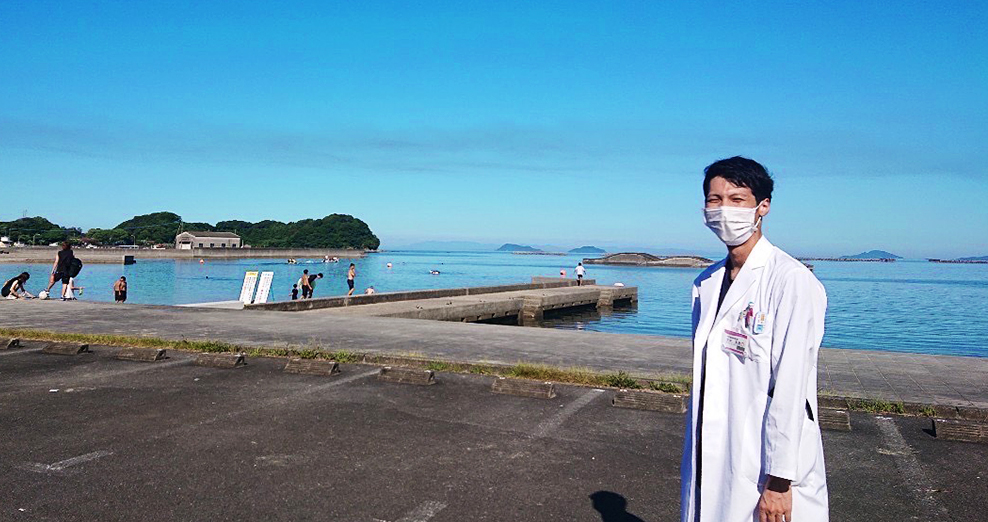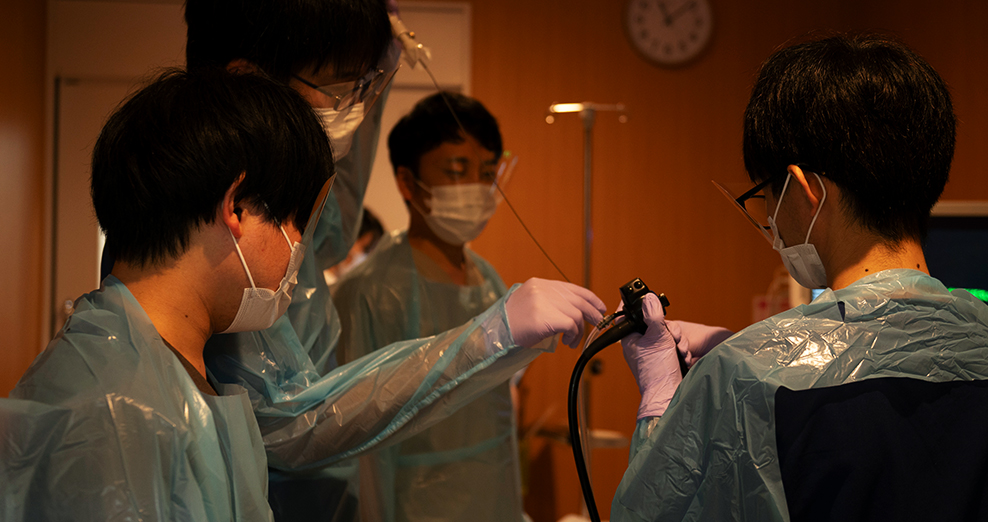Message for Regional DoctorsMessage for Regional Doctors

※At the site of home care visits
There is no concern about falling behind in obtaining a specialist certification.
R.H.
(Initials notation)
Graduated in 2016
Can I obtain a specialist certification even if I entered through the regional admission program?
Yes, you can obtain both the internal medicine specialist certification and the respiratory medicine specialist certification. Since the new specialist certification system started in 2018, those who obtained their medical license after 2016 will follow the new system. The new system has additional requirements for completion, but if you wish to obtain your specialist certification as quickly as possible, the department will adjust your schedule and work with your preferences as much as possible. Being admitted through the regional program does not mean you will fall behind in obtaining your specialist certification. In my own case, the department took my work location and other factors into account, and I was able to obtain both the internal medicine and respiratory medicine specialist certifications in the shortest time possible.
Can I practice respiratory medicine if I enter through the regional admission program?
Yes, you will primarily work as a respiratory medicine specialist and gain ample experience in the field. There are several affiliated hospitals where regional admission graduates work. While there may be slight differences in the number of beds and the specific procedures available at each facility, the core experience remains the same. You will be able to experience a wide range of cases, including infections, diffuse lung diseases, allergies, and malignancies, and you will also be able to perform procedures such as bronchoscopy, thoracentesis, and chest tube insertion.
In my case, I spent my 3rd-4th and 8th-9th years at a regional core hospital. During my 3rd-4th years, I mainly worked as an internal medicine resident, gaining significant experience in not only respiratory diseases but also other internal medicine conditions, allowing me to meet the case requirements for the internal medicine specialist certification. From my 5th-7th years, I trained at the university hospital and affiliated facilities in Oita City. In my 8th-9th years, I worked again as a respiratory medicine specialist at a regional core hospital. As a specialist, I engage in outpatient care and inpatient management, but also participate in teams such as the infection control team, antibiotic stewardship team, and respiratory care support team. Through my experience at multiple facilities as a regional admission graduate, I believe I have gained sufficient expertise in my field.

